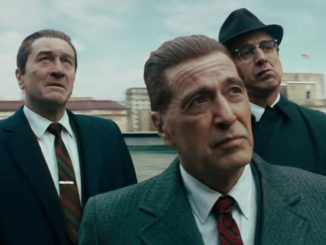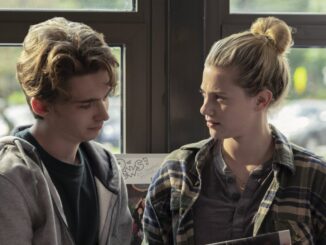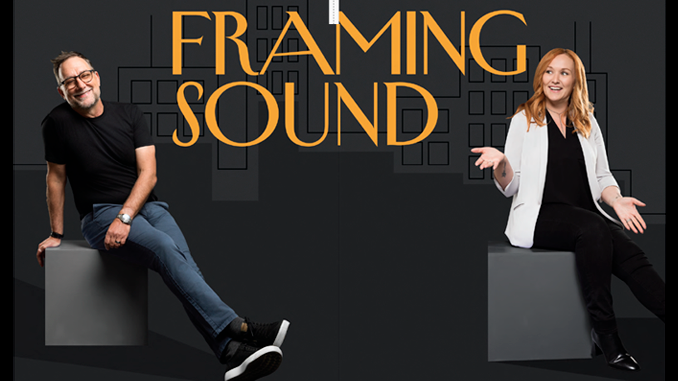
By Peter Tonguette
If you have ever found yourself entranced by an Agatha Christie mystery, fascinated by film noir, or taken with true-crime docudramas on television, you will likely find kindred spirits in Charles-Haden Savage, Oliver Putnam, and Mabel Mora. In the hugely popular Hulu series “Only Murders in the Building,” Charles (Steve Martin), Oliver (Martin Short), and Mabel (Selena Gomez) are among the denizens of the Arconia, a tony New York apartment building whose friendship rests in their collective interest in murder mysteries. This being the 21st century, the trio embarks on a true-crime podcast. Created by Martin and John Hoffman, the series skimps on neither mystery nor comedy: the unsolved crimes presented are juicy and intriguing, and the shenanigans of Charles, Oliver, and Mabel are always entertaining. Over the course of three seasons to date, the show has established an impressive roster of recurring and guest stars, including Tina Fey, Nathan Lane, Paul Rudd, and Meryl Streep.
Helping make the mystery—and the wit—come to life are supervising sound editors Mathew Waters and Danika Benton Wikke. Together, they make the smallest footstep resonate and each line of dialogue sparkle.
A native of Kentucky, Waters got his start in the business while attending San Jose State University where, during his senior year, he attended a talk by sound designer Stephen Hunter Flick (“RoboCop,” “Speed”). “I didn’t know this job existed, and when he came and talked about what he did, it was everything I love to do,” said Waters, who has enjoyed a long career in feature films and television. He is a multiple Primetime Emmy winner for his work on “Game of Thrones,” “Daisy Jones & the Six,” and, most recently, “Only Murders in the Building.”
Wikke, who grew up outside of San Francisco, always wanted to break into the movie business, but it wasn’t until she was going to school at California State University, Northridge, that she settled on sound. “I grew up with a theater background,” she said. “Working with actors feels natural to me. When recording ADR, I really love the aspect of getting their dialogue to work. It’s a puzzle to me — trying to get a word or a new phrase or a better performance, and then making it fit.” Having established herself on numerous series, including “Brooklyn Nine-Nine,” Wikke won a Golden Reel Award for “Only Murders in the Building.”
CineMontage recently spoke with Waters and Wikke about the show, its cast, and its intricate sound world.
CineMontage: Mathew, what appealed to you about “Only Murders in the Building”?
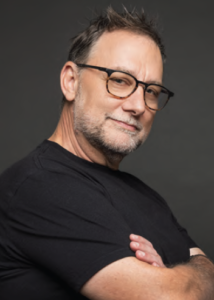
Mathew Waters: I’ve been doing this a long time, and I’m probably in the last bridge of my career. I saw in the trades that Steve Martin, Martin Short, and Selena Gomez were doing a show together, and I just really admired them. I thought, “Wow, I would love to work with them.” I kind of made it a mission to try and get the show. I had an interview, and then, luckily, I got the job. I usually do bigger tent poles, but to me, this is big.
CineMontage: Danika, you began as the dialogue editor on Season 1.
Danika Benton Wikke: It was completely random, and I’m so lucky I got on it. I was in between supervising a few different shows and I literally had a two-month lull where I had nothing to do. I’m with Formosa [Group], and they said, “Hey, do you want to cut a show called ‘The L Word’?” I’ll cut anything, but then they said they got another show in sooner. I saw Steve Martin and Martin Short—I love them. I started with Episode 2, so I was like, “Who the hell is Tim Kono [a key character in Season 1]? What just happened?” I didn’t have a clue what was happening, but I cut it anyway. I was there the whole season, and then we went back to Episode 1. The whole time I was starting to piece the story together, but I still didn’t really know what happened and who this guy was.
CineMontage: How did you become co-supervising sound editor starting on Season 2?
Wikke: Matt said, “I would like for you to cut dialogue again,” but he was actually going back and forth between New York and LA because he had another show. He said, “I’m going to need some help supervising because I’m going to be in New York the whole time other than the very last mix.” I said, “Absolutely.”
CineMontage: Can you both talk about reasons, such as when we don’t have something that we need story-wise or we need to fix something.
Waters: When we get the material, we go through and edit and we find production alts. Danika is very good at that. I also consider myself a good listener, maybe because I’m from Kentucky. When I’m mixing, I’m thinking, “What are they saying? What is she saying? What is he saying?” And if I have to say that, then I’m going to call for a production alt.
Wikke: It can be something really silly like an “s”: “I need a better ‘s’ in the beginning of this line.” But there are a lot of little things that we add that might not feel like big things, but they do help in bringing out the dialogue and the performance.
CineMontage: Danika, is the process made easier because you have actors with such a command of language?
Wikke: It totally helps. I would say the hardest one is Selena, because she does have a definite tonal shift in her voice. She just has an interesting voice, so a lot of times I swap out, or at least try to hit, certain syllables with her, depending on the situation.
CineMontage: Is it satisfying to make small changes that end up having a big impact?
Wikke: There are times where I’ll have to create a word out of nothing. During the last season, there is a scene in the theater and we needed a line. Uma the neighbor [Jackie Hoffman] was grabbing a Playbill from the usher right before the show starts, and she had lip flap. There was nothing recorded for her. We thought, “We need something for her,” and it was the eleventh hour. We were on the stage, and we weren’t going to bring her in for ADR. It looked like she was saying a “thank you,” because she took the Playbill, but she didn’t say that on the day. Just by knowing the show and having all my sessions there, I thought, “OK, what episode would she possibly says ‘thanks’ or a ‘thank you’?” And I thought of a scene in Season 1 where she was in a diner and said “thank you” to the server setting down a plate, and I pulled the “thank you” and I took out the plate sound.
CineMontage: You’ve created a library of sounds for some of the actors, right?
Wikke: I’ve been doing this since Season 1. Marty has that snorting thing he does, which I call a “Marty original.” I have a library of little sounds. If Steve makes a sound, or if anyone else does something that’s kind of nondescript but that I could use for something else, like a grunt or a snort, I’ll export it out and save it. I have a ton of “Marty originals.” I label them: “low snort,” “low laugh,” or “big laugh,” or whatever.
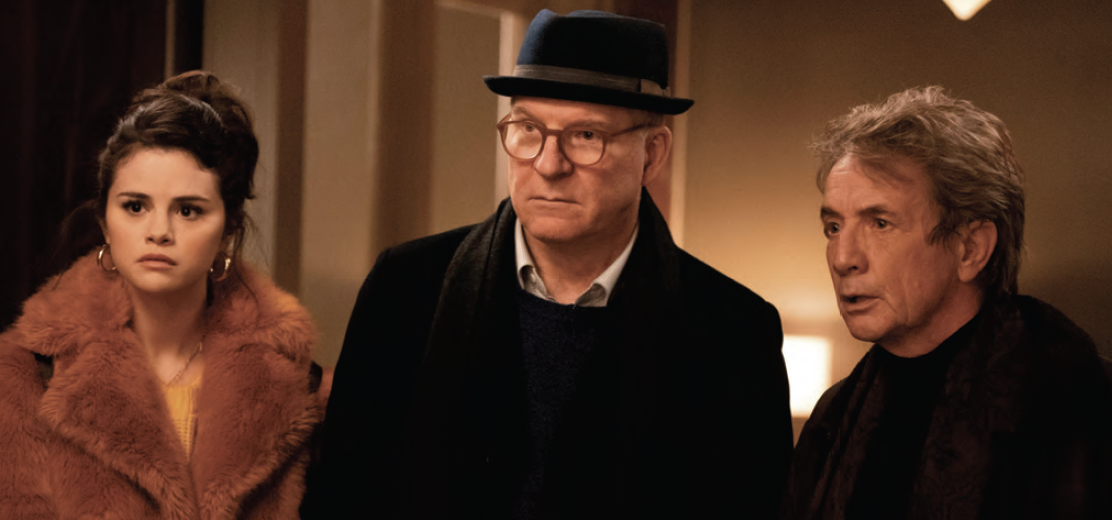
CineMontage: Mathew, how would you describe the overall sound world on the show?
Waters: We have to make New York a character, and we have to make the apartment building a character. It’s all done very subtly. We don’t want to get in the way of anything. When I’m designing, I’m trying to enhance the story or to let the viewer know where they are, but I also want to stay as far away from the dialogue as I can while also making it feel layered and that you’re not on a set. Every now and then we have a spotted [intended] effect, such as a car horn. But in the apartment complex, I don’t like to have sirens because they live in an upscale neighborhood. I get that New York has sirens, but it’s just something I chose not to do. There will be some car honks and some [pass-] bys, but you’ll never hear a siren unless it’s a story point.
CineMontage: Danika, does the show feel more like a comedy or a mystery or its own particular thing?
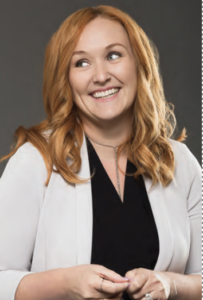
Wikke: I think it’s its own thing, to be honest. It’s such a unique piece of work. There are some episodes that feel way more mystery-driven, and then there are some that are a little bit more nostalgic, bringing out the old-school New York sound.
CineMontage: Mathew, for mystery scenes, how do you use sound to create suspense without giving away secrets in the plot?
Waters: Each season, there is usually something off-stage that’s happening because they can never shoot the kill. One season it was somebody falling on top of the elevator and you don’t find out who until the end. That sound you were hearing throughout the season was somebody — in this instance, Paul Rudd, who was falling on top of the elevator. Right now, I’m putting together a soundscape that was scripted that runs throughout the season that’s supposed to confuse the audience. “What are we hearing?” To be honest, it’s really fun because you kind of have to work backwards.
CineMontage: It sounds like you don’t want to tip the audience.
Waters: A lot of these sounds have to eel like: “What is that?” It has to be a little spooky, a little eerie, a little “Huh?” And then it has to match towards the end.
CineMontage: Are silences sometimes important on a show like this?
Waters: In Episode 1 in Season 3 [about the production of Oliver’s Broadway show], it was so hard and fun and difficult to make the table read as awkward and still and uncomfortable as possible. There is all this silence. We really cleaned out the dialogue. It was as quiet as possible. We added some light, light background, just so you knew you weren’t on a set. Then you would hear Foley of the pen, or Foley of someone taking off his glasses, which seemed loud just because it was uncomfortable. That’s a great example of ”How do we not get in the way of these performances?”
CineMontage: It’s sound in service of storytelling, isn’t it?
Waters: That’s exactly right. I always say you go through stages in your career as a sound person, and at some point, you stop trying to show off. You get to the point where all you care about is the story, and directing the story with the director.
Wikke: It’s one of my favorite projects of my career. The people working on the show are the kindest and most creative people I’ve ever worked with, and I’m super-grateful to be a part of it. It’s so collaborative, and we all work well together and have no egos. It’s a very nice atmosphere, and I think it shows with what we produce.




